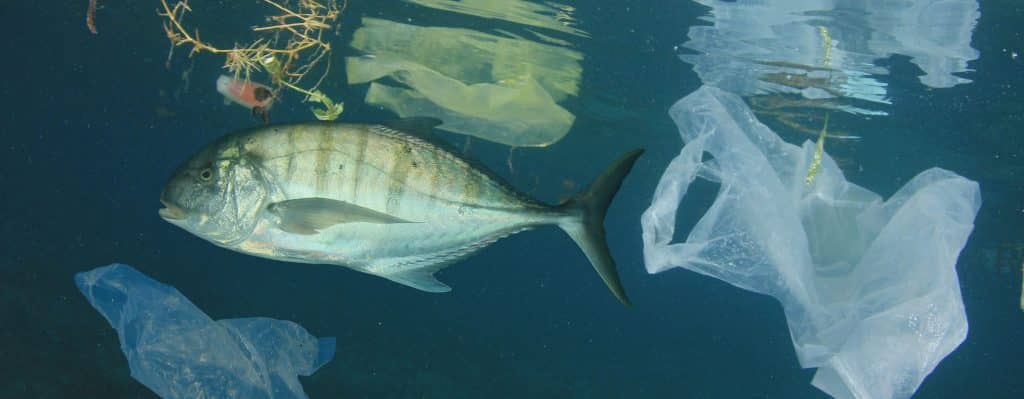SMART ADVICE
Fish Meat is Still Meat
WRITTEN AND EDITED BY
LISA EVERETT ANDERSEN, RPh, CCN, FACA,
& SHANA CURTIS WEBB

Of recent, we’ve come to understand fish have become exponentially toxic due to the increased amount of poisons we have dumped into lakes, streams, rivers, and the oceans.
Enjoyed by people from around the world for centuries, fish are touted as a nutrient-rich, unadulterated alternative to beef, chicken, and pork. Even some vegetarians will forgo their regular diet to have a nice piece of wild caught salmon or a plate of sushi now and then. After all, fish are a source of Omega 3s, so they must be a healthy choice, right?!
I wish I could agree. I wish I could tell you fish are the one type of meat that is OK to eat… but they are not. My book, Learning To Thrive in a Toxic World and the Impact of Clinical Endocrinology and BHRT, is already wrong. At that time, the EPA had fish at the bottom of the toxic meat list. Of recent, we’ve come to understand fish have become exponentially toxic due to the increased amount of poisons we have dumped into lakes, streams, rivers, and the oceans. Besides that, the reality is fish are still meat, with all of the nasty biochemical effects that all animal products, including meat, can have on our bodies and our environment.
From microplastic to farm chemical run-off to corporate chemical and garbage dumping – all of our water sources are contaminated with deadly substances. Even with the hard work of environmental agencies to clean the waterways and alert us to the ill effects of our contaminations, the waters and their inhabitants are getting sicker and sicker.
New studies have shown fresh water fish are full of the “forever chemicals” PFAS and PFOS. When we ingest them, these chemicals can destroy the immune system, increase cholesterol, disrupt the endocrine system, and create cancers. Per Scott Faber, senior vice president for government affairs for The Environment Working Group, “Eating one bass is equivalent to drinking PFOS-tainted water for a month.”
Mercury is prevalent in many ocean fish, like swordfish and tuna, and now we’re seeing high levels of lead as well. As I discussed in Learning To Thrive In A Toxic World, mercury and lead can spawn health issues such as developmental and neurological damage and disorders, high blood pressure, kidney disease, anemia, weakness, lung issues, damage to the immune and digestive systems, and death. Even a very low exposure to lead can be injurious. Mercury deposits itself throughout the body, including in organs, bones, and even breast milk. But perhaps the most damage occurs from mercury deposits in the brain. According to autopsy studies, it may take several decades to clear or just partially clear mercury from the brain, and, obviously, this only happens when no additional mercury is taken into the system. In fact, studies show a woman should not consume fish at all for 5 years leading up to pregnancy, otherwise there is serious risk of exposing the baby to mercury and other pollutants in the womb.
Many people think they’re safe because they only eat farm-raised fish, but those fish have all of the same toxins, and typically more, than what is found in wild fish, they are generally fed a GMO diet, and they are often loaded with disease and viruses.
In addition to their man-made contaminations, both wild and farm-raised fish are naturally high in methionine and choline, some more so than other meats. Methionine can trigger and “feed” different types of cancer cells, allowing them to grow into active tumors instead of flatlining out. Meat-derived choline has been linked to arterial plaquing and TMAO production. TMAO is a highly inflammatory substance that is a major cause of heart disease, kidney disease, and stroke.
Studies have been done comparing varying intakes of meat versus no meat and how they relate to the onset of diabetes. What they have found is the lower the meat consumption, including fish, the lower the risk. In fact, one study consisted of people who ate healthy to fairly healthy diets – all high in plant foods with no junk food consumption, no sodas, etc., but some ate fish or another meat once or twice a week. The results demonstrated that those who ate a vegetarian diet still had a lower risk of becoming diabetic than the meat eaters. However, there were no cases of diabetes found amongst the vegans in the study.
Beyond what consuming fish can do to our health, there is the environmental impact. As famous angler and biologist, Jeremy Wade, once said, “Seeing that large, predatory fish is a sign that this lake, this river is healthy. If they are not there, the water is in trouble. And if the water is in trouble, I’ll tell you what, we are also in big trouble.” The truth is, our lackadaisical ways of buying and consuming without insight or thought have caught up with us. We are seeing a large decline in not just the big fish but many types of fish and other water dwelling animals throughout the world. It is our responsibly as stewards of the Earth to do what we can to curb insensitive actions towards other planetary creatures, the Earth’s soils, and her waters. Yes, I would love to have a piece of beautifully prepared halibut or Copper River salmon once a year on a special dinner occasion…but I love myself and my planet too much to give in.
I’ve compiled several very short videos by Dr. Michael Greger and a few additional studies and articles that might further help you understand the consequences of eating fish. I would also like to recommend the documentary, Seaspiracy, whose website is listed below as well.
Videos and Articles:
How Much Microplastic is Found in Fish Fillets?
https://nutritionfacts.org/video/how-much-microplastic-is-found-in-fish-fillets/
Lead Contamination in Fish and Game
https://nutritionfacts.org/video/lead-contamination-in-fish-and-game/
Switching From Beef to Chicken & Fish May Not Lower Cholesterol
https://nutritionfacts.org/video/switching-from-beef-to-chicken-fish-may-not-lower-cholesterol/
ALS (Lou Gehrig’s Disease): Fishing for Answers
https://nutritionfacts.org/video/als-lou-gehrigs-disease-fishing-for-answers/
Farmed Salmon Deaths From Disease Reach Record High
https://theferret.scot/farmed-salmon-deaths-disease-reach-record-high/
Endangered Wild Salmon Infected by Newly Discovered Viruses
https://elifesciences.org/articles/47615
Red Fish, White Fish, Dark Fish Atrial Fibrillation
https://nutritionfacts.org/video/red-fish-white-fish-dark-fish-atrial-fibrillation/
Farmed Fish Vs Wild Caught
https://nutritionfacts.org/video/farmed-fish-vs-wild-caught-2/
Avoiding Fish for 5 Years Before Pregnancy
https://nutritionfacts.org/video/avoiding-fish-for-5-years-before-pregnancy/
Fish
https://nutritionfacts.org/topics/fish/
Flame Retardant Contamination and Seafood Sustainability
https://www.researchgate.net/publication/324239079_Flame_Retardant_Contamination_and_Seafood_Sustainability
Flame Retardant Found in Some Common Foods
https://www.webmd.com/food-recipes/news/20120530/flame-retardant-found-in-some-common-foods#1
From Sea to Plate: How Plastic Got Into Our Fish
https://www.theguardian.com/lifeandstyle/2017/feb/14/sea-to-plate-plastic-got-into-fish
From Fish to Humans, a Microplastic Invasion May Be Taking a Toll
https://www.scientificamerican.com/article/from-fish-to-humans-a-microplastic-invasion-may-be-taking-a-toll/
Carnitine, Choline, Cancer, & Cholesterol: the TMAO Connection
https://nutritionfacts.org/video/carnitine-choline-cancer-and-cholesterol-the-tmao-connection/
How to Reduce Your TMAO Levels
https://nutritionfacts.org/video/how-to-reduce-your-tmao-levels/
Plant Based Diets and Diabetes
https://nutritionfacts.org/video/plant-based-diets-and-diabetes/
Seaspiracy
https://www.seaspiracy.org/
